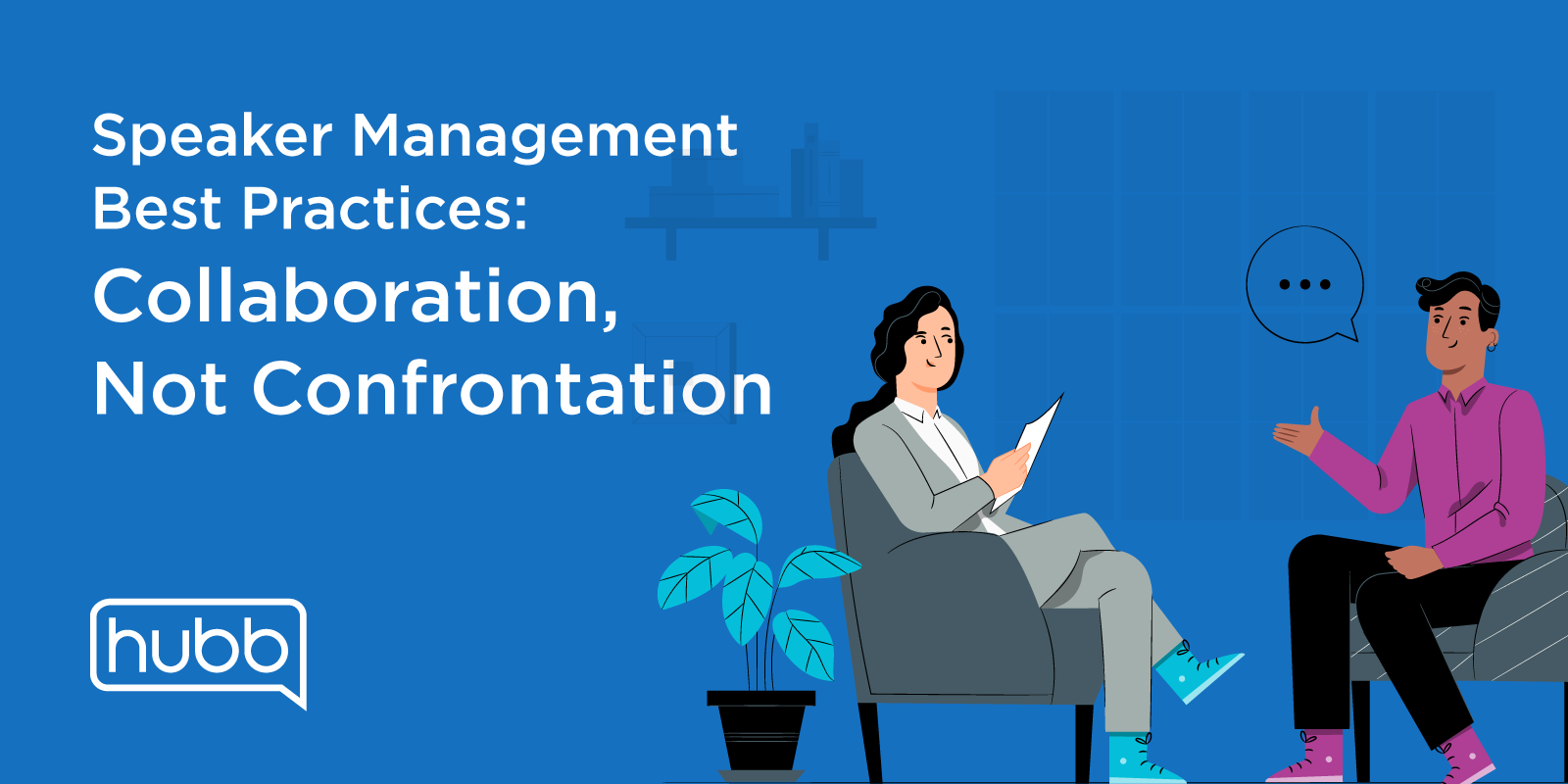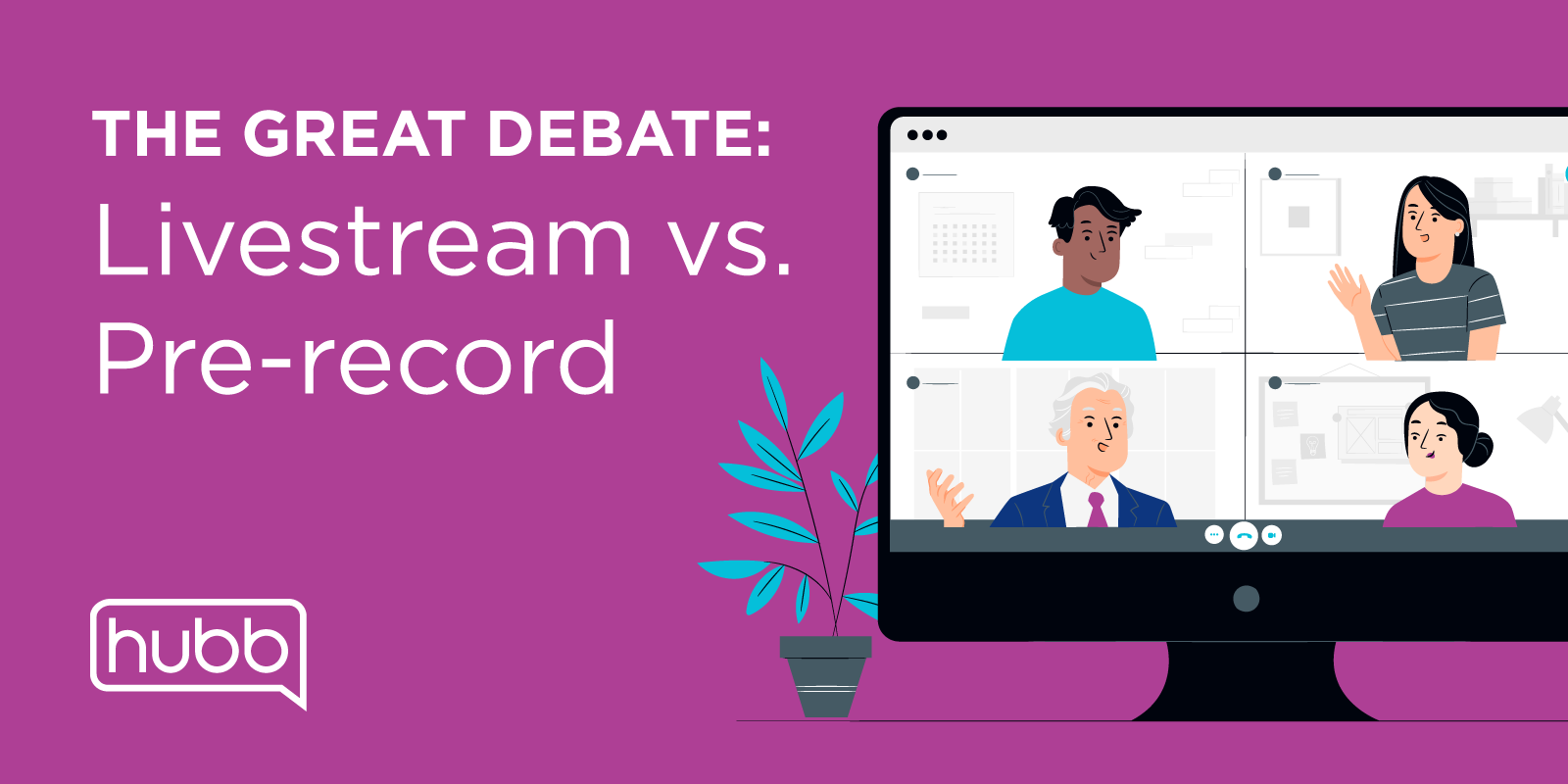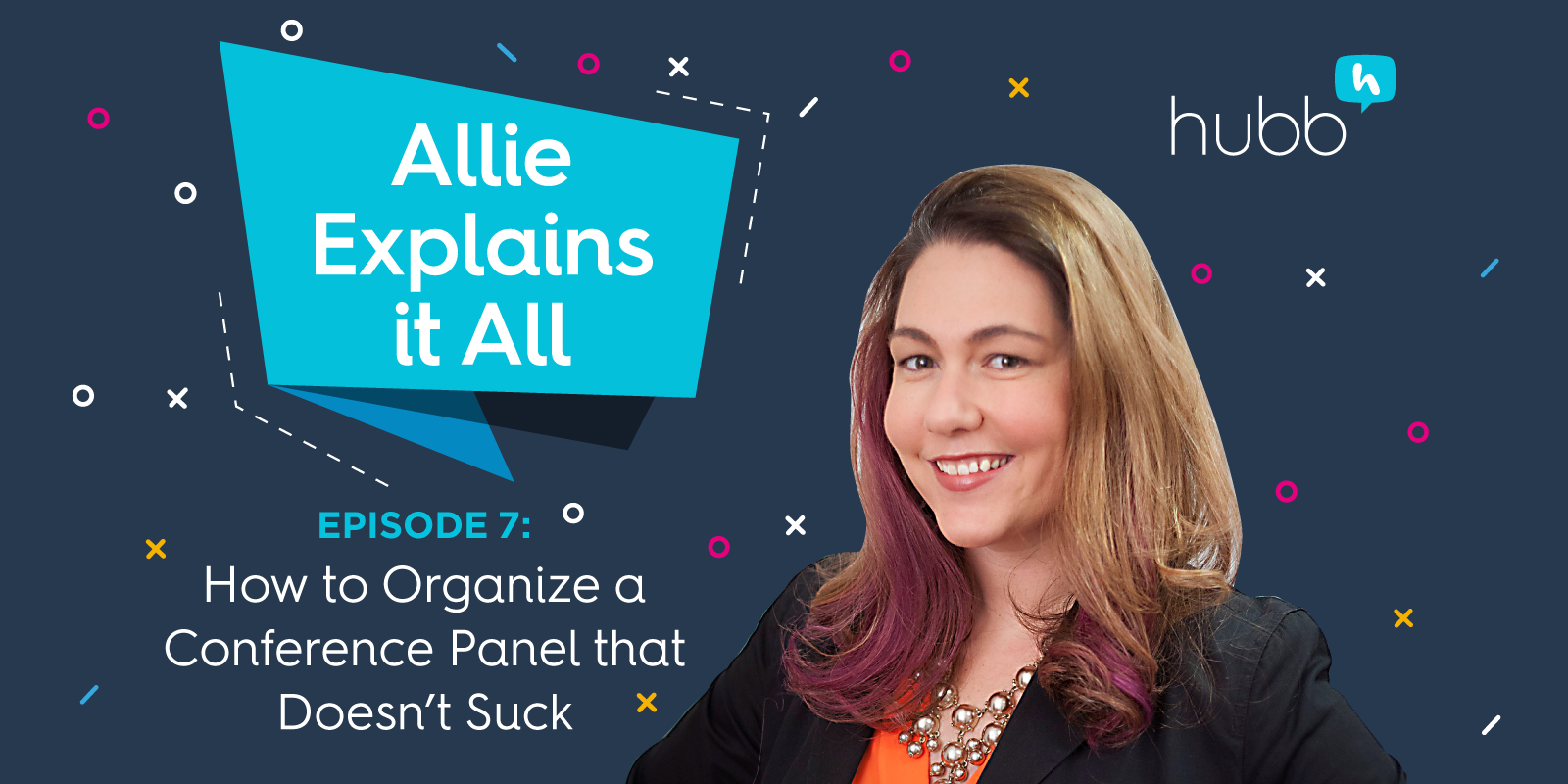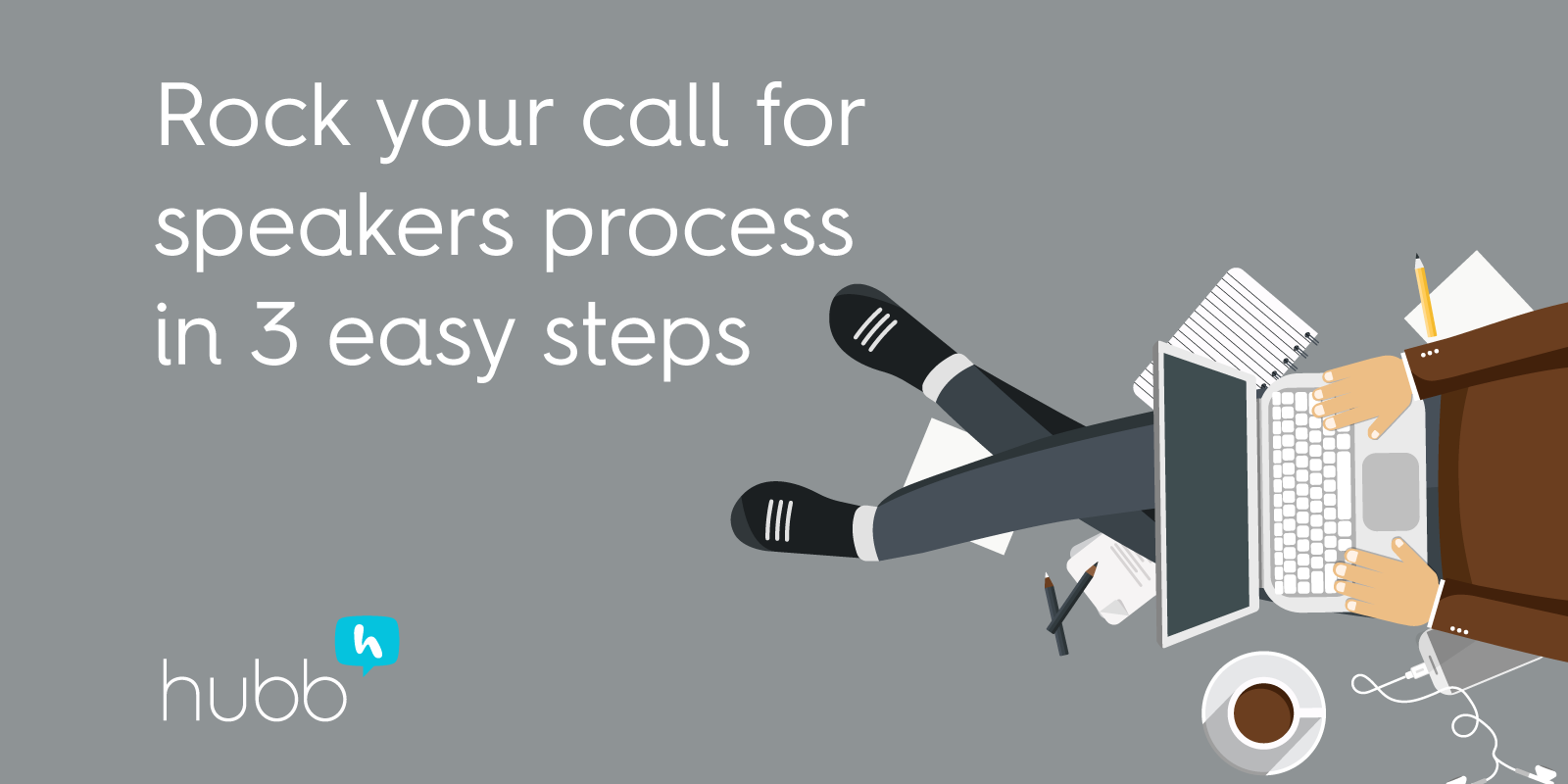
An Event Logistics Webinar
Often we focus on interpersonal techniques to build relationships with event speakers, but all the love letters in the world won’t help if our lack of organization makes speakers’ jobs frustrating. It sets everyone up for failure.
You can be the sweetest, most charismatic event prof in the world, but if you’re not communicating to your speakers the information they need, when they need it, they’re not coming back to your event. And they’re going to tell all their speaker friends.
In our May webinar Allie Magyar, CEO of Hubb, and Andrea Buck, Content Manager at Dynamic Events, break down the most important speaker management considerations to keep everyone happy.

Speaker management topics include:
- What to include in your speaker agreement to set proper expectations
- How to create an awesome speaker management work-back schedule (plus attendees will get a free template!)
- Important details to include in your “know before you go” speaker email
- Which communications will keep your speakers engaged from the start to the end of the event
Highlights from the speaker management/event logistics webinar
Allie and Andrea described each of the speaker milestone moments, when your speakers are going to be the most engaged with you and your event. Of course, the timeline varies regarding how far in advance you should launch these milestones, depending on the size of your event, the time of year, and other variables. For example, launching a session catalog in mid-December is going to make it hard to promote.
Here are more in-depth descriptions of some of those speaker management milestones:
- Content creation starts. Content creation is when you’re defining strategy and building the outline of sessions you want to deliver at your event.
- Call for speakers. It pays off at this milestone to describe the type of content you’re looking for, speaker compensation and expectations. Maybe you're offering a free or discounted pass to the event, or only a T-shirt. You can save your content team some churn by making these things as clear as possible, up front. Also, consider mentioning any diversification initiatives your event or company might be prioritizing.
- Session catalog goes live. The session catalog is a key piece for launching your marketing campaign for speaker exposure. The public gets a look at what’s going to be delivered, and it’s a key point to see how attendee registration ticks up.
Next you move into managing your content. That includes:
- Accepting and declining sessions. In this section, Allie offered a key speaker management tip. After the grading process, share the comments from your graders to speakers with whom you have declined to move forward with. This Sharing comments builds loyalty and trust because people know you value their time, and they’re gaining value and benefit from participating even if they weren’t accepted.
- Presentation reviews and speaker training. Speakers are one of the best resources for marketing your event. If they are active on Linkedin and Twitter or in other spaces online, they can get great traction with their own followers and have a huge impact. Help your speakers promote themselves and the event by giving them tweets to share about the event.
Additionally, with an online content management system like Hubb, speakers can consult the website for facts on their session time slot, room location and number of registered attendees. You can also provide them with real-time information about your organization’s mission, conference goals, program content and attendee demographics. Supplying this information not only puts speakers’ minds to rest, but it makes your job easier by minimizing the need to respond to email requests for routine information.

Watch the webinar to find out more details about the remainder of the speaker timeline, and to learn more about how to create speaker agreements, how to set up your "know before you go" templates and what information to communicate to your speakers at the different touch points, as well as other helpful speaker management information.
Want more? Download Hubb's Speaker Management Best Practices White Paper. With a few simple best practices, managing your speakers can go from a major pain in the you-know-what to one of the easiest items on your (extensive) to-do list.








